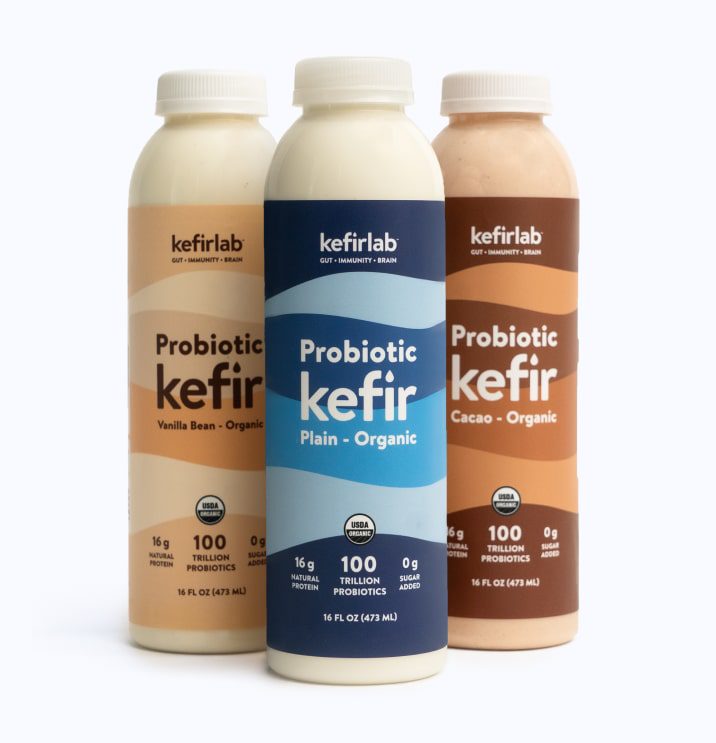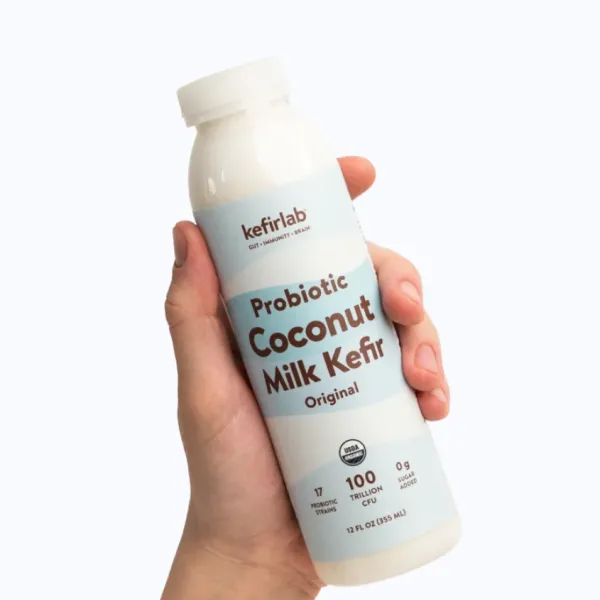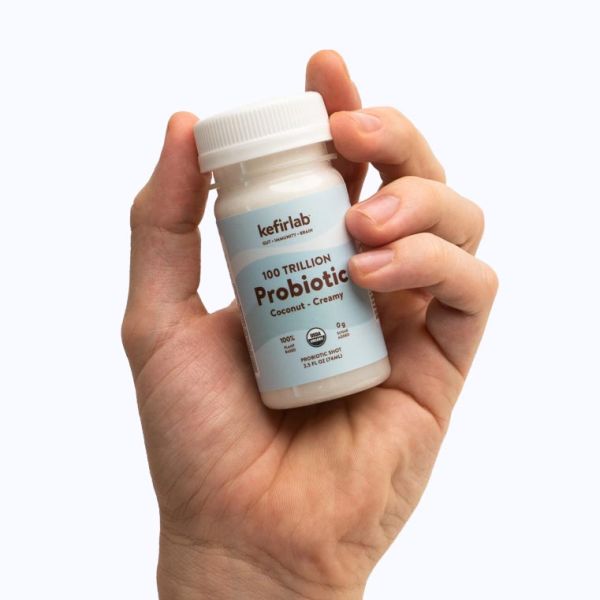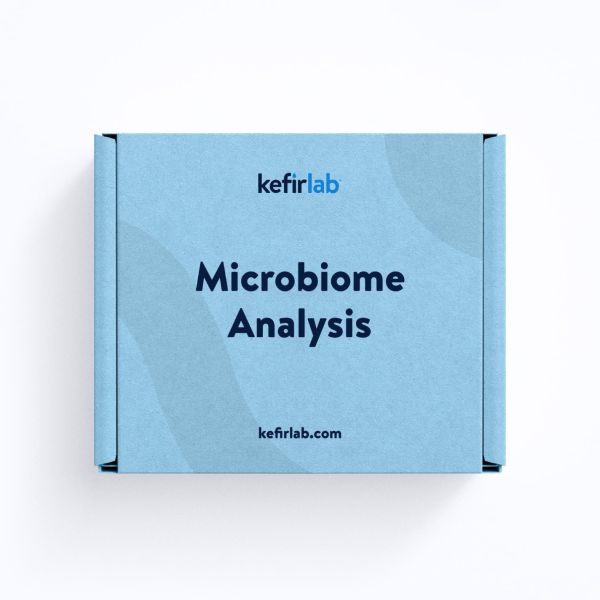How Gut Health Influences Heart Health: Understanding the Connection

In This Article you will learn…
The human gut is not just a digestion center but also a critical regulator of our overall health, including heart health.
Recent research has revealed a significant link between the condition of our gut microbiome and the health of our cardiovascular system, known as the gut-heart axis.
This guide will explore how maintaining a healthy gut can lead to better heart health, supported by scientific research and expert advice.
By the end, you’ll understand why caring for your gut means caring for your heart.
Understanding the Gut-Heart Axis
The gut-heart axis is the biochemical signaling between the gastrointestinal tract and the cardiovascular system.
This connection suggests that the state of your gut health can directly influence heart health through various mechanisms:
- Production of SCFAs: Beneficial gut bacteria break down fiber to produce short-chain fatty acids (SCFAs) that have anti-inflammatory effects and are known to influence blood pressure and cholesterol levels.
- Inflammation Reduction: A healthy gut can help reduce systemic inflammation, a known risk factor for heart disease.
- Modulation of Cholesterol: Certain probiotic strains can impact cholesterol metabolism by breaking down bile salts, affecting cholesterol levels.
Understanding these mechanisms lays the foundation for how targeted dietary and lifestyle changes can promote heart health through the gut.
Probiotics and Heart Health
Probiotics are beneficial bacteria that support gut health and have shown potential for improving heart health.
Here’s how they contribute:
- Cholesterol Management: Some probiotics can help reduce LDL (“bad”) cholesterol and increase HDL (“good”) cholesterol, contributing to better heart health.
- Blood Pressure Control: Regular intake of certain probiotics has been linked to modest reductions in blood pressure, thanks to their role in producing substances that help regulate blood pressure.
Including probiotic-rich foods like kefir, yogurt, and fermented vegetables in your diet can be a strategic move to harness these benefits for heart health.
Dietary Influence on Gut and Heart Health
What we eat profoundly impacts our gut microbiome and, in turn, our heart health. Here’s how your diet can play a crucial role:
- Fiber-Rich Foods: Diets high in fiber (from fruits, vegetables, whole grains, and legumes) support the growth of beneficial gut bacteria. These bacteria ferment fiber, producing SCFAs that have been shown to reduce the risk of inflammatory diseases, including heart conditions.
- Anti-inflammatory Foods: Incorporating foods rich in omega-3 fatty acids, such as fish, nuts, and seeds, can help reduce inflammation throughout the body, including the cardiovascular system.
- Fermented Foods: Regular consumption of fermented foods like kefir, sauerkraut, and kimchi introduces beneficial probiotics into the gut, which can improve both gut and heart health.
Table: Heart-Healthy Probiotic Foods
| Food Type | Benefits | Example Foods |
|---|---|---|
| Fermented | Introduce beneficial probiotics; improve gut barrier; reduce heart disease risk factors | Kefir, yogurt, kimchi |
| Fiber-Rich | Promote beneficial bacteria growth; produce SCFAs that lower heart disease risk | Oats, beans, berries |
| Omega-3 Rich | Reduce inflammation; improve cholesterol levels | Salmon, flaxseeds, walnuts |
Practical Tips for Integrating Heart-Healthy Gut Practices
Implementing changes to benefit both your heart and gut health can be straightforward with these practical tips:
- Start with Probiotics: Integrate a small serving of kefir or yogurt into your daily diet. KefirLab’s range of probiotic products, including their flavorful Coconut Kefir, is an excellent place to start.
- Increase Fiber Intake: Aim for at least 25-30 grams of fiber per day from various sources to ensure a healthy gut microbiome and improved heart health.
- Incorporate Plant-Based Meals: Try to include more plant-based meals into your week. These meals are typically high in fiber and antioxidants, which are great for the heart and gut.
- Stay Hydrated: Drinking enough water is crucial for maintaining the health of your gut lining and overall cardiovascular function.
- Regular Exercise: Moderate exercise several times a week can help improve gut bacteria diversity and cardiovascular health.
Frequently Asked Questions (FAQs)
What is the gut-heart axis?
The gut-heart axis is the biological link between the gastrointestinal system and cardiovascular health.
This connection is based on how gut microbes influence heart health through various mechanisms, including the metabolism of dietary components, production of bioactive molecules, and modulation of systemic inflammation.
How do probiotics influence heart health?
Probiotics can positively affect heart health by:
- Lowering Cholesterol: Certain probiotic strains can reduce LDL cholesterol levels and, in some cases, increase HDL cholesterol.
- Reducing Blood Pressure: Regular consumption of probiotics has been associated with slight reductions in blood pressure, likely due to improved overall gut health and reduced systemic inflammation.
- Improving Metabolic Responses: Probiotics can enhance the metabolism of bile acids and other substances, which helps regulate cholesterol and other factors linked to heart disease.
Can improving gut health reduce the risk of heart disease?
Yes, improving gut health can reduce the risk of heart disease.
A healthy gut microbiome helps to reduce systemic inflammation, a major risk factor for cardiovascular disease.
Additionally, a well-balanced gut microbiota can influence blood lipid levels and help in the prevention of obesity, both of which are key contributors to heart disease.
What foods are best for supporting both gut and heart health?
Foods that are beneficial for both gut and heart health include:
- High-Fiber Foods: Legumes, whole grains, fruits, and vegetables help foster a healthy gut microbiome.
- Omega-3 Fatty Acids: Found in fish like salmon and flaxseeds, they help reduce inflammation and are good for heart health.
- Fermented Foods include yogurt and kefir, which introduce beneficial probiotics into the gut.
How often should I consume probiotics to benefit my heart?
Incorporating probiotics into your daily diet can be beneficial for best results.
This could be through probiotic supplements or foods enriched with probiotics, like kefir, yogurt, and other fermented products.
Consistency is vital in maintaining the balance of gut flora, which in turn supports heart health.
Are there any risks associated with using probiotics for heart health?
For most people, probiotics are safe and have minimal risks.
However, individuals with compromised immune systems or those with severe illnesses should consult with their healthcare provider before starting any new probiotic regimen.
What lifestyle changes can support both gut and heart health?
In addition to dietary changes, lifestyle modifications such as regular physical activity, adequate sleep, stress management, and avoiding smoking and excessive alcohol consumption can significantly benefit your gut and heart health.
Can gut health impact other areas of health besides the heart?
Yes, gut health has wide-reaching effects on the entire body, including immune function, brain health, weight management, and more.
Maintaining a healthy gut is fundamental to overall wellness.
Conclusion and Summary
The link between gut health and heart health is robust and supported by increasing scientific evidence.
Taking care of your gut through diet, lifestyle choices, and probiotics can significantly impact your heart health.
Here are some key points to remember:
- Gut-Heart Connection: A healthy gut contributes directly to heart health through inflammation reduction and cholesterol management.
- Diet Matters: Eating a variety of fiber-rich and fermented foods supports both gut and cardiovascular health.
- Lifestyle Changes: Simple changes like incorporating more probiotics, increasing fiber, and regular physical activity can make a significant difference.
We encourage you to visit the HealthLab Blog for more information and insights on maintaining a healthy lifestyle.
Also, check out KefirLab’s Probiotic Store to explore products that can help support your journey to a healthier gut and heart.
Works Cited and Relevant Studies
- Costanza, A. C., & Giovanni, M. (2020). The impact of gut microbiota on cardiovascular health and disease. Journal of Cardiovascular Development and Disease, 7(3), 33.
- Tang, W. H. W., Kitai, T., & Hazen, S. L. (2017). Gut Microbiota in Cardiovascular Health and Disease. Circulation Research, 120(7), 1183-1196.
- Sanders, M. E., Guarner, F., Guerrant, R., Holt, P. R., Quigley, E. M., Sartor, R. B., Sherman, P. M., & Mayer, E. A. (2013). An update on the use and investigation of probiotics in health and disease. Gut, 62(5), 787-796.
Join Kefir Club
Like our probiotics, our emails are clean and good for you. Spam Free. Unsubscribe anytime.














